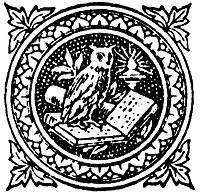ISSN 1750-4953
Marginalia
Home
About Marginalia
Current Issue
Archived Issues
Notes to Contributors
Links to Other Online Journals
Marginalia -- The Website of the MRG
Marginalia
Home
About Marginalia
Current Issue
Archived Issues
Notes to Contributors
Links to Other Online Journals
Marginalia -- The Website of the MRG
Illumination in the Digital Age
If �digital natives� are the next audience for our scholarly resources, as Kate Wittenberg has recently suggested (Chronicle of Higher Education, 16 June 2006), scholars, publishers, and information technology professionals alike must be prepared to meet this new generation of students and researchers on their own turf � on an increasingly hybridised online information landscape. The ethos encapsulated in the new maxim �when in doubt, Google it out�, has filtered up, in a sense, even to the highest echelon of academic practice, as Google is now being used in collaboration with educational institutions as a platform to direct students toward increasingly imaginative, though �quality-controlled�, learning resources. But as Google, along with other meta-search engines, becomes more adept at meeting educational needs, scholars must be ready to take advantage of such tools for the efficient and widespread dissemination of their intellectual activity. Medieval Studies, amongst other fields, has already begun to carve out a reputation for doing just that. Electronic facsimiles of medieval manuscripts (for example, http://www.image.ox.ac.uk/) and online hypertext and hypermedia editions of medieval texts (for example, http://www.library.rochester.edu/camelot/teams/tmsmenu.htm) have become more and more accessible on the World Wide Web in recent years, and the frequency with which they have emerged has grown in tandem with their sophistication and functionality. To evoke the theme of this current issue, �illumination�, it seems, in more than one sense of the word, has gone digital. But such resources are now only the tip of the iceberg in a field in which e-mails, online bibliographies, scholarly forums, list-servs, online databases, and online journals � to name but a few � have become part of the medievalist�s day-to-day business. As a result, the days of meeting only twice-yearly at Kalamazoo and Leeds are over; in this global research community medievalists now have the ability to �interface� through a variety of media and collaborate on projects in real or near-real time.
Such activity, though, has prompted a number of questions. How do these virtual spaces affect the way we conduct research? And, perhaps more importantly, how does a digital facsimile of a medieval manuscript (which can be re-sized, re-coloured and otherwise digitally altered, amid other concerns) influence the way such an object is received? And how does a hypertext edition of, say, Ancrene Wisse, affect our understanding of that text? These are questions which must be addressed and re-addressed as technology evolves and as the internet becomes an increasingly important tool for the distribution of such resources. Many of these questions, though, have already begun to be tackled. In the past few years sessions at conferences such as Leeds and Kalamazoo have been devoted specifically to the concerns surrounding electronic resources, and as of 2003 a new journal, The Digital Medievalist (online, of course, at http://www.digitalmedievalist.org/), has been created to confront these and like questions directly. As the attention given to these concerns implies, there can be little doubt that the proliferation of electronic resources for scholarly enterprise has profoundly and indelibly influenced the practice of medieval scholarship, and success in the future will rely increasingly on our ability to adapt new technology to the conventions of the trade � to meet these �digital natives� with �quality-controlled� material in the forums with which they are familiar.
Accordingly, while keeping these questions and potential trepidations in mind, it has been the position of Marginalia (both website and journal) that the development of online resources for research can only move us forward. The intentions of our practice, like other such enterprises, have been aimed at �illumination� � at bringing to light as quickly and effectively as possible the activities of graduate students at the University of Cambridge and around the world. As the essays in this third issue of Marginalia demonstrate, though, this project of constructing new interpretations of historic sources, of employing various media to reconstruct and illuminate past narratives, is nothing new. From, for example, Carrie Peffley�s essay on Al-Farabi�s medieval interpretation of Aristotle to Linda Bates� discussion of language in the Mystery Cycles, or from Ilse Schweitzer�s investigation of the Crux Gemmata in Anglo-Saxon poetry, jewellery, and stone sculpture to Irene Fabry�s discussion of manuscript illumination in the French and English versions of the Prose Merlin, the articles in this issue deal with medieval artists and thinkers who employ various languages, conventions, and media to reach the widest possible audience as efficiently and effectively as possible � and in this the aims of Marginalia and the medieval sources discussed herein, are in many ways very much the same.
As a final note, this issue has incurred debts to a number of dedicated and hard-working individuals. Thanks are particularly due to the members of the Advisory Board for their persistent support and encouragement, and also to the Editorial Board, who carried the bulk of the workload. The contributors, too, are equally deserving of thanks, not merely for their essays, but also for their willingness to work with the editors to see this issue come about. Also, in particular, the assistance of Helen Foxhall-Forbes, Angela Chew, Richard Beadle and Elsa Strietman is greatly appreciated, as is the special contribution by Stella Panayotova on behalf of the Fitzwilliam Museum, who also kindly provided an image from their recent �Cambridge Illuminations� exhibition. And finally, a special debt of gratitude is due to all those who attend the meetings of the Medieval Reading Group, from whom Marginalia finds its inspiration.
James Wade, on behalf of the Medieval Reading Group
 Contents |
 Next |

